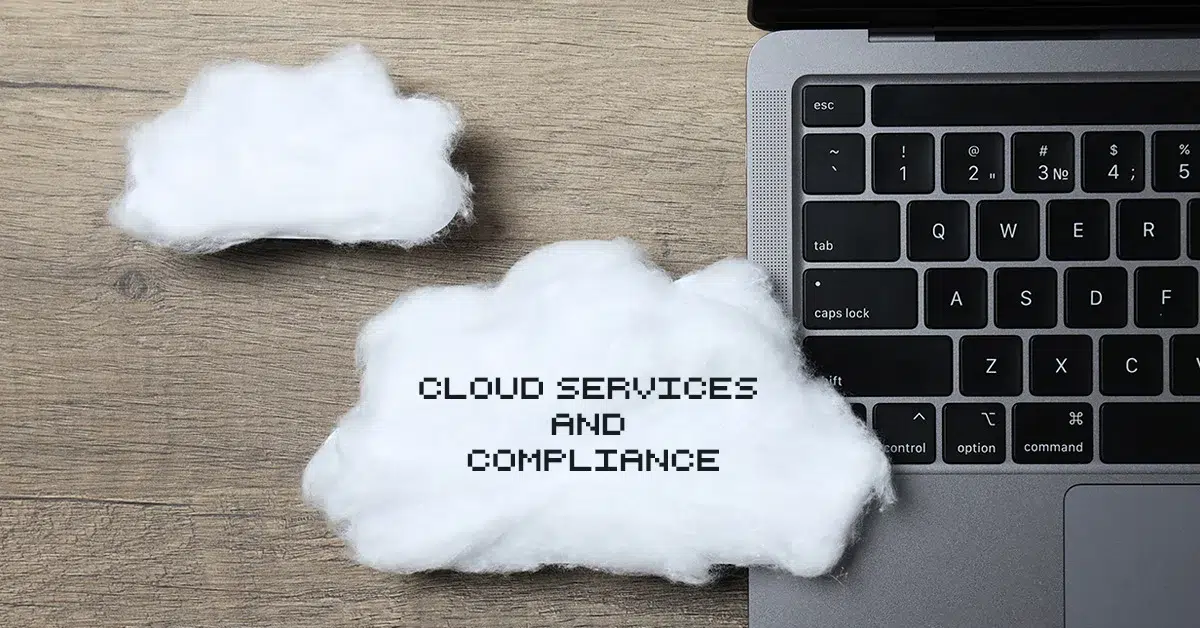
Understanding Global Compliance
In today’s interconnected digital landscape, understanding global compliance is paramount for organisations to ensure the security and integrity of their web systems. Compliance with international regulations and standards is essential to protect sensitive data and mitigate cybersecurity risks effectively.
Importance of Web Security Compliance Global
The importance of compliance with global web security standards cannot be overstated. It ensures that organisations adhere to specific rules and regulations, safeguarding against potential cyber threats and vulnerabilities. By achieving compliance, businesses can establish risk-based controls that protect the confidentiality, integrity, and availability (CIA) of information in accordance with regulatory requirements.
Key Regulations and Standards
Navigating through a myriad of regulations and standards is a critical aspect of global web security compliance. Organisations must stay abreast of key regulations such as ISO/IEC 27032, an internationally recognized standard that provides guidance on cybersecurity for organisations. Adhering to these standards aids in navigating global requirements for cybersecurity compliance effectively.
Compliance Challenges
Navigating Different Jurisdictions
One of the primary challenges in global web security compliance is navigating different jurisdictions. Each region may have its own set of laws and regulations pertaining to cybersecurity, making it complex for organisations operating across borders. The need to align with diverse legal frameworks while maintaining a unified approach to compliance poses significant challenges for businesses seeking global adherence.

Cybersecurity Considerations for 2024
As organisations prepare to navigate the evolving landscape of cybersecurity considerations in 2024, it is imperative to stay abreast of key trends and challenges that shape the digital security domain. By addressing these considerations proactively, businesses can fortify their defences and ensure compliance with regulatory frameworks.
Key Cybersecurity Considerations
In April 2024, cybersecurity professionals are tasked with prioritising several key considerations to bolster their organisations’ security postures effectively. These considerations encompass a broad spectrum of technological advancements and threat landscapes, emphasising the need for comprehensive risk management and proactive security measures. By focusing on these key areas, businesses can mitigate potential risks and enhance their overall cybersecurity resilience.
- Technology Assessment: Conducting thorough assessments of existing technologies is crucial to identify vulnerabilities and gaps in the current security infrastructure. By leveraging advanced assessment tools and methodologies, organisations can gain valuable insights into potential weaknesses and develop targeted strategies to address them effectively.
- Cybersecurity Trends Monitoring: Staying informed about emerging cybersecurity trends is essential for anticipating potential threats and vulnerabilities. Proactive monitoring enables organisations to adapt quickly to evolving threat landscapes, implement robust security measures, and align with global best practices in cybersecurity.
- RMiT Policy Framework Adherence: Adhering to the Risk Management in Technology (RMiT) policy framework is paramount for organisations operating in Malaysia. This framework provides guidelines for managing technology-related risks effectively, ensuring compliance with national cybersecurity regulations, and promoting a culture of continuous improvement in digital security.
Cybersecurity Trends
The year 2024 brings forth an array of dynamic cybersecurity trends that shape the way organisations approach digital security. From the proliferation of artificial intelligence (AI) in threat detection to the increasing sophistication of ransomware attacks, staying ahead of these trends is critical for maintaining robust cyber defences.
- AI-Powered Threat Detection: The integration of AI-driven capabilities in threat detection empowers organisations to identify and respond to potential cyber threats swiftly. By harnessing AI algorithms, businesses can enhance their ability to detect anomalous activities and proactively thwart potential breaches before they escalate into significant security incidents.
- Ransomware Resilience Strategies: As ransomware attacks become more sophisticated, organisations must develop resilient strategies to mitigate these threats effectively. Implementing secure backup solutions, conducting regular ransomware simulations, and fostering a culture of heightened awareness are pivotal in combating ransomware attacks while ensuring business continuity.
Compliance in Malaysia
Adapting to Malaysian Regulations
For Malaysian businesses, adapting to local regulations is integral to maintaining compliance with national cybersecurity standards. The Malaysia Cyber Security Strategy 2020-2024 outlines specific requirements that businesses must adhere to regarding data protection, incident response protocols, and risk management practices. By aligning with these regulations proactively, organisations can demonstrate their commitment to safeguarding sensitive information while contributing towards a secure digital ecosystem within Malaysia.

Cloud Services and Compliance
In the realm of web security compliance, Cloud Backup solutions play a pivotal role in ensuring the integrity and availability of critical data assets. Leveraging robust Cloud Backup services enables organisations to fortify their digital infrastructure against potential data loss and cyber threats.
Cloud Backup and Security
Implementing comprehensive Cloud Backup strategies involves deploying advanced encryption protocols to safeguard sensitive information stored in cloud environments. By encrypting data at rest and in transit, organisations can mitigate the risk of unauthorised access and ensure the confidentiality of their data assets.
Office Cloud Backup Solutions
Office Cloud Backup solutions offer tailored backup mechanisms for office-specific applications and data repositories. These solutions are designed to provide seamless integration with office productivity tools, ensuring continuous data protection and streamlined recovery processes.
Remote Cloud Backup Solutions
For remote work scenarios, Remote Cloud Backup Solutions offer enhanced flexibility and resilience in safeguarding distributed data assets. These solutions enable secure backup operations for remote endpoints, facilitating efficient data recovery and minimising operational disruptions.
Cloud Managed Services
In the realm of web security compliance, Cloud Managed Services play a pivotal role in ensuring the seamless operation and maintenance of cloud environments. These services encompass a comprehensive suite of tools and resources designed to optimise cloud infrastructure, enhance security protocols, and streamline operational workflows.
Organisations leveraging Cloud Managed Services benefit from proactive monitoring and management of their cloud-based systems, ensuring optimal performance and resilience against potential disruptions. By entrusting the management of their cloud environments to specialised service providers, businesses can focus on core operations while relying on expert support for maintaining robust security measures.
Benefits of Cloud Managed Services:
- Proactive Monitoring: Continuous monitoring of cloud environments to identify potential vulnerabilities and performance issues.
- Security Enhancement: Implementation of advanced security measures to safeguard data integrity and confidentiality within cloud systems.
- Operational Optimization: Streamlined operational workflows through automated processes and efficient resource allocation.
- Resilience Against Disruptions: Rapid response mechanisms for mitigating disruptions and ensuring business continuity in the event of system failures.
Cloud Environments in Malaysia
The adoption of Cloud Environments in Malaysia has witnessed significant growth, driven by the need for scalable, cost-effective IT solutions. Malaysian businesses are increasingly embracing cloud technologies to leverage flexible infrastructure options, enhance data accessibility, and foster digital innovation.
Advantages of Cloud Environments in Malaysia:
- Scalability: Flexible infrastructure options that cater to varying business needs and growth trajectories.
- Data Accessibility: Seamless access to critical data assets from diverse locations, enabling remote collaboration and operational flexibility.
- Digital Innovation: Facilitating technological advancements through agile development practices and enhanced computing capabilities.
Disaster Recovery in the Cloud Technology
Implementing robust strategies for Disaster Recovery in cloud technology is imperative for organisations seeking comprehensive resilience against unforeseen disruptions. By leveraging advanced recovery mechanisms tailored for cloud environments, businesses can mitigate data loss risks and ensure rapid restoration of critical systems.
Disaster Recovery Measures:
- Backup Solutions: Implementing secure backup mechanisms with encryption protocols to protect sensitive data assets.
- Continuity Planning: Developing comprehensive continuity plans to address potential disruptions effectively.
- Testing Protocols: Conducting regular disaster recovery testing in Malaysia to validate the efficacy of recovery strategies.
Disaster Recovery Testing Malaysia
In the realm of web security compliance, Disaster Recovery Testing holds paramount significance in ensuring the resilience and operational continuity of digital systems within Malaysia. Conducting comprehensive testing protocols is essential for validating the efficacy of recovery strategies and fortifying organisations against potential disruptions.
Importance of Testing Protocols
Disaster Recovery Testing involves simulating various disaster scenarios to assess the readiness and responsiveness of recovery mechanisms. By conducting regular testing exercises, organisations can identify potential gaps, refine their recovery plans, and enhance their overall preparedness to mitigate data loss risks effectively.
Validation Through Simulations
Simulating real-world disaster scenarios enables organisations to validate the functionality and efficiency of Disaster Recovery solutions. These simulations encompass a range of scenarios, including system outages, data breaches, and natural disasters, allowing businesses to evaluate their ability to restore critical systems and maintain operational continuity.
Continuous Improvement Approach
Embracing a culture of continuous improvement is integral to refining disaster recovery strategies in alignment with evolving cybersecurity landscapes. By leveraging insights from testing outcomes, organisations can implement targeted enhancements, update response protocols, and ensure that their disaster recovery measures remain robust and effective.

Legal Frameworks and Regulations
As organisations navigate the intricate landscape of global web security compliance, understanding the legal frameworks and regulations is imperative to ensure adherence to specific laws and standards that govern cybersecurity. The legal requirements play a pivotal role in shaping the compliance landscape, emphasising the need for organisations to align with regulatory frameworks effectively.
Understanding Legal Requirements
The understanding of legal requirements encompasses a comprehensive knowledge of the various acts, statutes, and regulations that pertain to cybersecurity Security. Organisations must familiarise themselves with the provisions outlined in these legal instruments to gain insights into their obligations and responsibilities regarding data protection and information security.
Compliance and Legal Implications
Achieving compliance with legal requirements carries significant implications for organisations operating in the digital sphere. The Act of adhering to specific laws and regulations not only mitigates potential risks but also fosters a culture of accountability and transparency within the organisational framework. Non-compliance can lead to severe repercussions, including financial penalties, reputational damage, and legal sanctions.
Role of Legal in Compliance
The role of legal professionals in ensuring Security compliance extends beyond interpreting statutes; it involves proactively navigating the complex legal landscapes to develop robust strategies for adherence.
Navigating Legal Landscapes
Navigating through diverse legal landscapes requires a strategic approach that integrates legal expertise with technological acumen. Legal professionals play a crucial role in analysing regulatory nuances across different jurisdictions, identifying potential areas of non-compliance, and formulating tailored strategies to address these challenges effectively.

SGS and Compliance Services
Role of SGS in Compliance
As organisations strive to navigate the intricate landscape of global web security compliance, the role of SGS (Société Générale de Surveillance) emerges as a pivotal factor in ensuring adherence to stringent regulatory frameworks and industry standards. SGS plays a multifaceted role in providing comprehensive compliance services that encompass a diverse array of web security measures and risk mitigation strategies.
SGS Services for Web Security
SGS offers an extensive suite of services tailored to address the dynamic challenges associated with web security compliance. These services encompass a holistic approach towards evaluating, fortifying, and validating the efficacy of security measures implemented by organisations. Key offerings include:
- Security Audits: Conducting thorough audits to assess the robustness of existing security protocols and identify potential vulnerabilities within digital systems.
- Compliance Assessments: Evaluating organisational adherence to global compliance standards and regulations, providing actionable insights for enhancing overall compliance posture.
- Risk Management Solutions: Developing customised risk management strategies that align with specific business objectives while addressing cybersecurity risks effectively.
- Security Certification: Providing certification programs that validate the implementation of best practices in web security compliance, bolstering organisational credibility and trustworthiness.
- Incident Response Planning: Formulating proactive incident response plans tailored to mitigate potential cyber threats and ensure rapid recovery from security incidents.
Compliance Services for Malaysian Businesses
For Malaysian businesses operating within the global digital landscape, SGS offers tailored compliance solutions designed to address region-specific regulatory requirements while aligning with international standards. These solutions are crafted to empower organizations with the knowledge, tools, and resources necessary to achieve comprehensive web security compliance within Malaysia’s legal framework.
Tailored Compliance Solutions
SGS’s tailored compliance solutions cater to the unique needs of Malaysian businesses seeking to fortify their web security posture while navigating through local regulations. Key components include:
- Regulatory Alignment: Assisting organisations in aligning their web security practices with Malaysia’s cybersecurity regulations, ensuring seamless integration with national legal frameworks.
- Industry-Specific Guidance: Providing industry-specific guidance on compliance requirements, offering nuanced approaches that cater to diverse sectors within Malaysia’s business landscape.
- Training and Education: Equipping personnel with specialised training programs focused on enhancing awareness about cybersecurity best practices and regulatory obligations.
- Continuous Support: Offering ongoing support through consultations, updates on evolving regulatory landscapes, and proactive guidance on adapting to emerging cybersecurity challenges.
By leveraging SGS’s expertise in compliance services for web security, Malaysian businesses can fortify their digital infrastructure while demonstrating unwavering commitment towards safeguarding sensitive information and upholding global standards for cybersecurity adherence.




